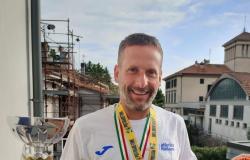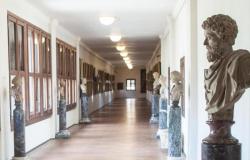AGI – The city of Padua is ready to host the next meeting of the European Astronomical Society (EAS)the largest European congress dedicated to astrophysics which will be held from 1 to 5 July 2024. The event will see the participation of almostthe 1800 experts in astronomy and astrophysicsmaking it one of the most important events of the year for the international astronomical community.
The National Institute of Astrophysics (INAF) has a leading role, not only in the organization of the congress (from a scientific and logistical point of view), but also for the strong presence of researchers who will present the latest discoveries to the community and the most recent studies in the field of astrophysics.
INAF, with its network of observatories and research institutes spread across the Italian territory, continues to be a fundamental pillar for world astronomy, significantly contributing to the progress of knowledge of the cosmos (from earth to space, observing the universe at all wavelengths).
Lo Scientific Organising Committee (SOC) of the meeting is led by INAF, with Bianca Poggianti, director of INAF of Padua, and Giuseppina Micela, research director at INAF in Palermo. During the five days of the conference, the participants – coming from more than 60 countries – they will have the opportunity to attend conferences, workshops and presentations in a completely hybrid mode (in person and online) on a wide range of topics, from black holes to the formation of galaxies, from extrasolar planets to gravitational waves, not to forget the astrochemistry, also dedicating ample space to data science and the application of artificial intelligence in astronomy, to the diversity of the research community and to the challenges of public engagement.
It will also be an opportunity for discuss current and future space missions (as the James Webb Space Telescope – JWST and Euclid, or Athena and Plato), of the great observatories that are being built all over the world (ELT and SKAO), and of the new technologies that are revolutionizing the way we explore the universe.
The European Astronomical Society was founded in Switzerland in 1990 with the aim of promoting astronomy and space research in Europe, facilitating collaboration between scientists and supporting science education. The annual meeting represents a fundamental moment for sharing knowledge and creating new synergies between researchers from all over the world. The organizers received over 2350 abstracts, 16% more than at the EAS 2023 meeting in Krakow.
This year, remote participants will have access to all sessions (plenaries, symposiums, special sessions, etc.), live or recorded, on a virtual platform, as well as by accessing the ePoster platform and dedicated space on Slack for EAS 2024.
The presentations will also include interventions by the winners of the MERAC and EAS awards and reports from the main European research institutions, which will provide a comprehensive overview of the activities and progress underway on the continent. Thanks to the contribution of the group that, within INAF, has drawn up the Gender Equality Plan, This year the EAS meeting is offering paid childcare for meeting attendees, a first for the conference center.
This service, designed to facilitate the participation of parents with young children in the conference, contributes to the achievement of gender equality in STEM disciplines, in line with target 5 of the UN 2030 Agenda for sustainable development. The service will be managed by qualified staff and will guarantee a safe and stimulating environment for children, allowing parents to take part in the various sessions of the conference.
The cost of the service will be kept at an affordable rate, reflecting the EAS’s commitment to making the meeting inclusive and accessible to all members of the astronomical community.
“Padua is a city that boasts an extraordinary tradition in astronomical research, and is today one of the centers of excellence at European level in this discipline. For this week the city also becomes the world capital of astronomy”, comments Sara Lucatello, astrophysicist at INAF in Paduaformer vice-president of the EAS who, starting from this edition, will lead as president (it will be the first time that a president comes from a Mediterranean country).
“The 2024 edition will see the participation of professionals working in all fields of astrophysics and space sciences, experts in science policies and dissemination. Various hot topics in modern astrophysics will be discussed, from the extraordinary results obtained thanks to JWST to the great potential of the telescopes under construction, such as the ELT and SKAO”.
The first female president in the history of EAS, Lucatello will serve as the organization’s top executive for two years. She adds: “It is a special honor for me to assume, on the occasion of EAS 2024, the presidency of the society that has grown significantly in recent years and now has more than 5,300 members. Succeeding the previous president, Roger Davies, who led EAS with skill and dedication for seven years, will not be an easy task, but I am determined to continue in his footsteps during my mandate.”





